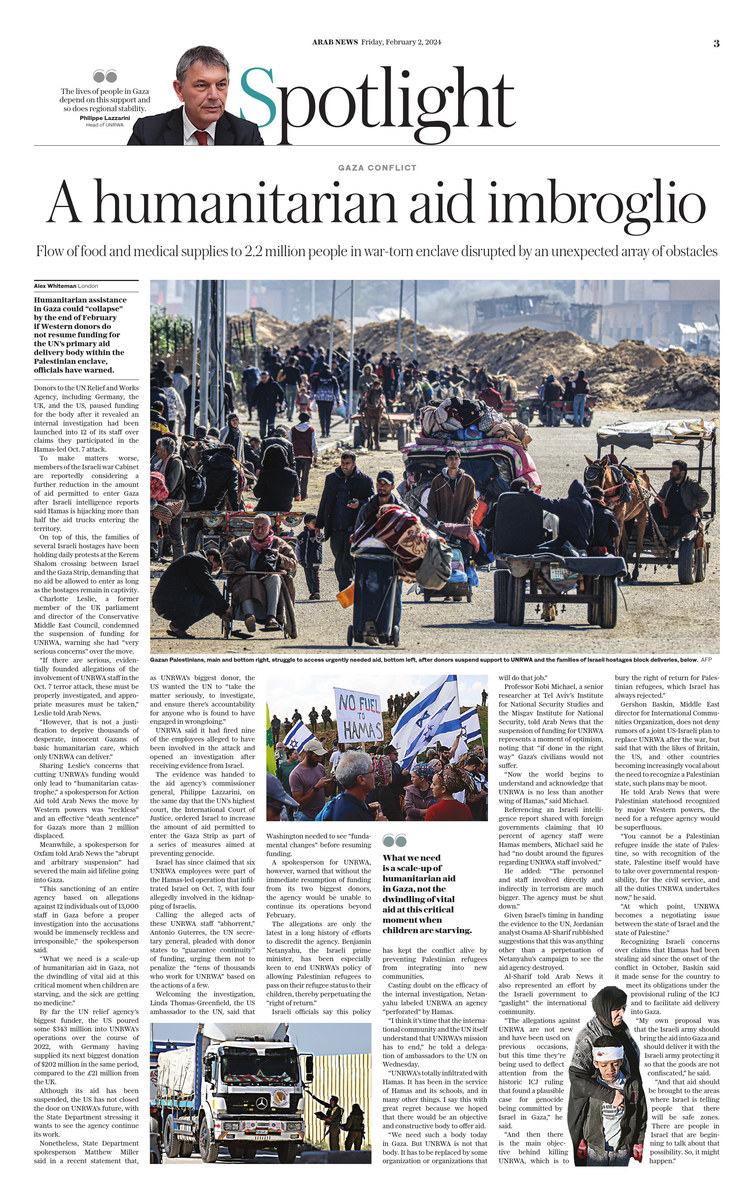LONDON: Humanitarian assistance in Gaza could “collapse” by the end of February if Western donors do not resume funding for the UN’s primary aid delivery body within the Palestinian enclave, officials have warned.
Several major donors to the UN Relief and Works Agency, including Germany, the UK and the US, paused their funding after an internal investigation was launched into 12 of the agency’s own staff over allegations that they participated in the Hamas-led Oct. 7 attacks.
To make matters worse, members of the Israeli war cabinet are reportedly considering a further reduction in the amount of aid that is permitted to enter Gaza, after Israeli intelligence reports alleged that Hamas is hijacking more than half of the aid trucks entering the territory.
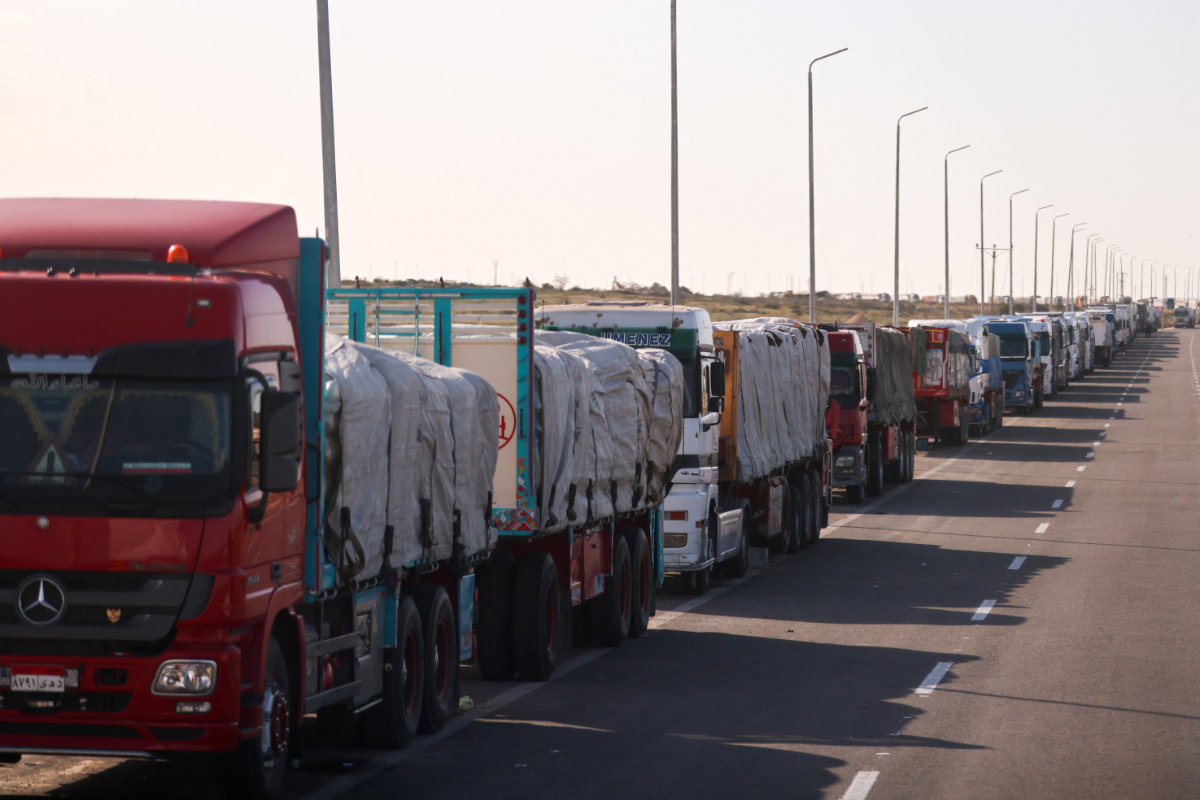
Trucks carrying aid line up near the Rafah border crossing between Egypt and the Gaza Strip on February 1, 2024, as they go through inspection by Israeli forces. (REUTERS)
On top of this, the families of several Israeli hostages have been holding daily protests at the Kerem Shalom border crossing between Israel and the Gaza Strip, demanding that no aid be allowed to enter the territory as long as their relatives remain in captivity.
Charlotte Leslie, a former member of the UK parliament and director of the Conservative Middle East Council, condemned the suspension of funding for UNRWA and said she had “very serious concerns” about such decisions.
“If there are serious, evidentially founded allegations of the involvement of UNRWA staff in the Oct. 7 terror attack, these must be properly investigated and appropriate measures must be taken,” Leslie told Arab News.
“However, that is not a justification to deprive thousands of desperate, innocent Gazans of basic humanitarian care, which only UNRWA can deliver.”
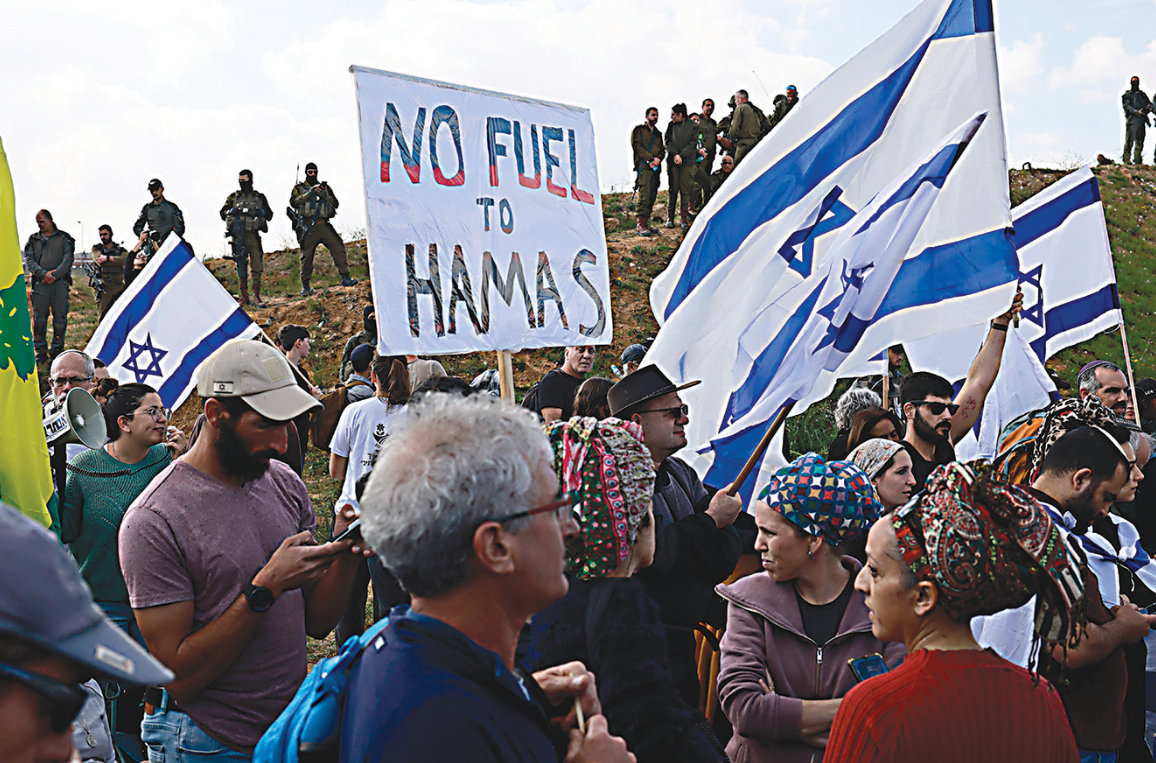
Israelis demonstrate on the Israeli side of the Kerem Shalom border crossing with the southern Gaza Strip on Jan. 29, 2024, to demand the release of hostages by Hamas. (AFP)
Echoing Leslie’s concerns that cutting funding for UNRWA would only result in a “humanitarian catastrophe,” a spokesperson for Action Aid told Arab News the move by Western powers was “reckless” and effectively a “death sentence” for more than 2 million displaced people in Gaza.
A spokesperson for Oxfam told Arab News the “abrupt and arbitrary suspension” of funding had severed the main aid lifeline to Gaza.
“This sanctioning of an entire agency based on allegations against 12 individuals out of 13,000 staff in Gaza, before a proper investigation into the accusations, would be immensely reckless and irresponsible,” the spokesperson said.
“What we need is a scale-up of humanitarian aid in Gaza, not the dwindling of vital aid at this critical moment when children are starving and the sick are getting no medicine.”
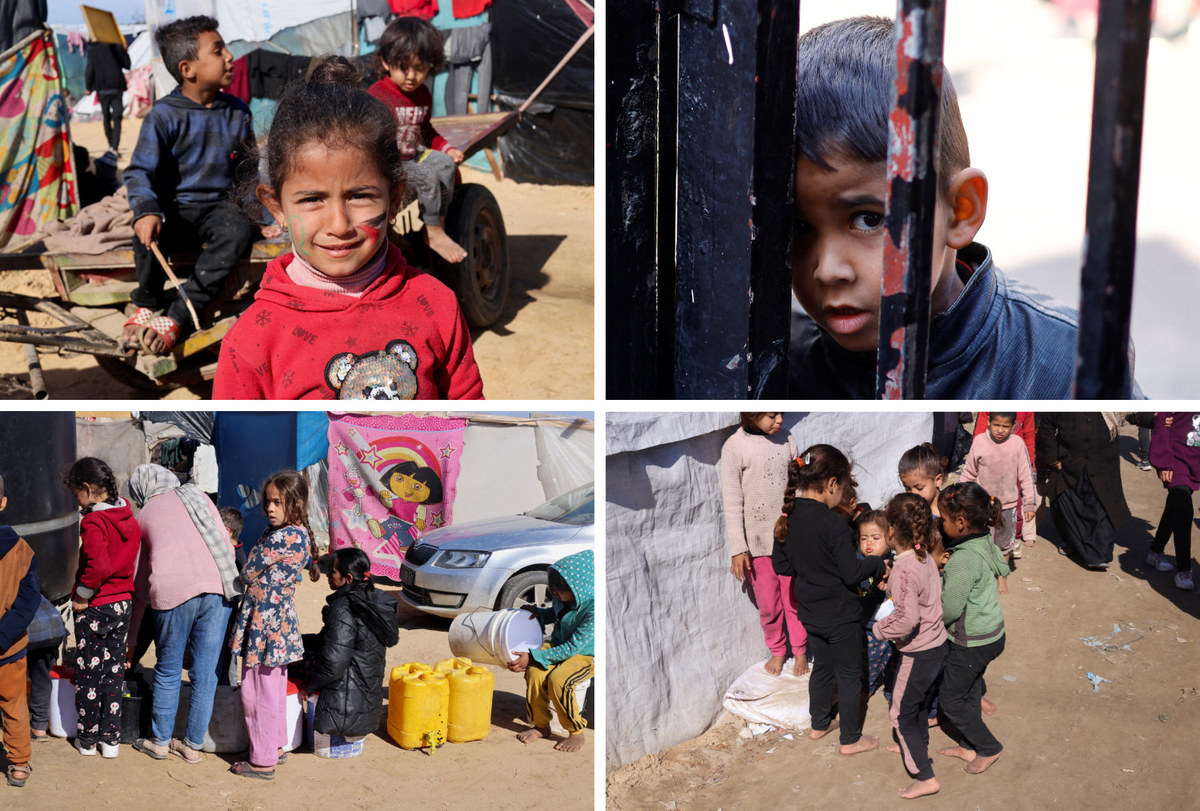
Palestinian children displaced by Israel's offensive in Gaza suffer most, deprived of their homes, amenities, education and health care. (Reuters)
The US, by far the biggest single source of funding for the UN relief agency, poured about $343 million into UNRWA’s operations throughout 2022. Germany provided the next-biggest donation of $202 million during the same period. The UK, in comparison, donated £21 million.
Although the US has suspended further payments to UNRWA, the State Department has said it wants to see the agency continue its work. Nonetheless, State Department spokesperson Matthew Miller said that as UNRWA’s biggest donor, the US needs the UN to “take the matter seriously, to investigate, and ensure there’s accountability for anyone who is found to have engaged in wrongdoing.”
UNRWA said it fired nine of the employees allegedly involved in the Oct. 7 attacks and launched an investigation after receiving evidence from Israel.
This evidence was presented to the agency’s commissioner general, Philippe Lazzarini. On the same day the UN’s highest court, the International Court of Justice, ordered Israel to increase the amount of aid permitted to enter the Gaza Strip, as part of a series of measures designed to prevent a genocide.
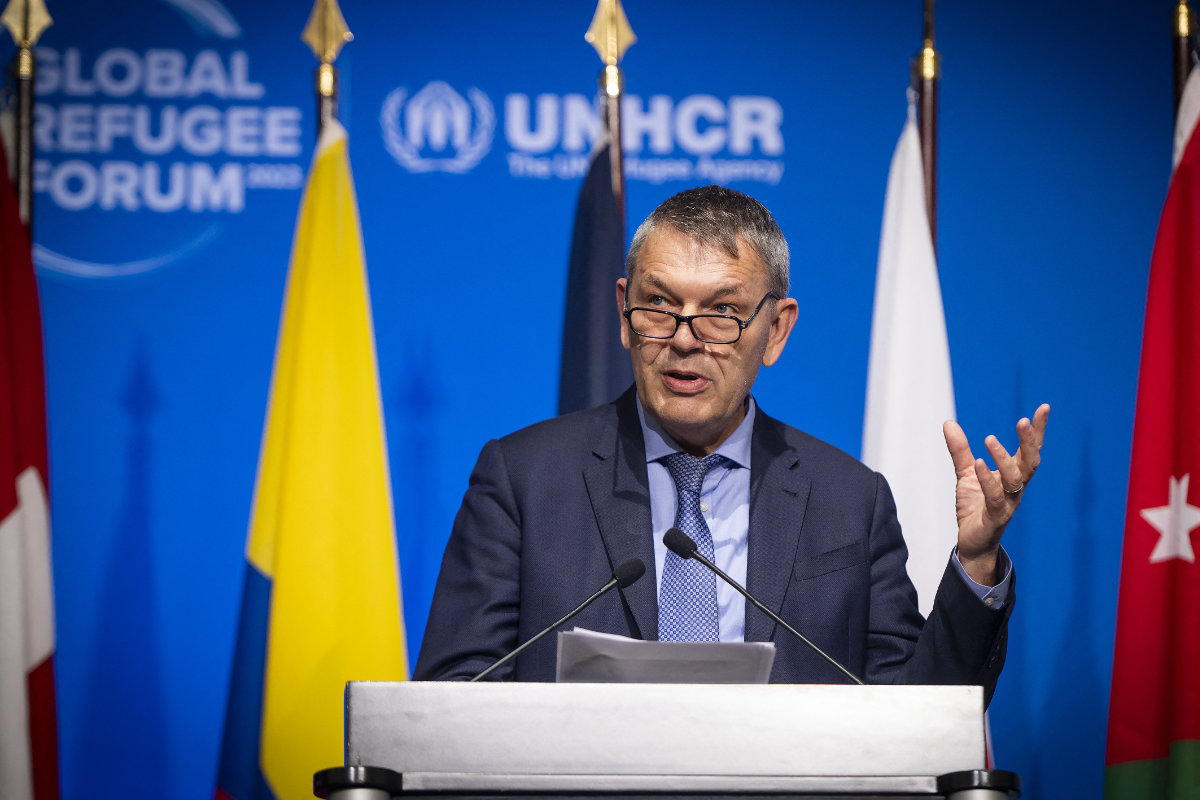
UNRWA Commissioner General Philippe Lazzarini has said the UN refugee agency quickly took action by firing nine of the employees allegedly involved in the Oct. 7 attacks and launched an investigation after receiving evidence from Israel. (AFP/File)
Israel has since alleged that six UNRWA employees were part of the Hamas-led operation that infiltrated Israel on Oct. 7, with four allegedly involved in the kidnapping of Israelis.
Describing the alleged acts of UNRWA staff as “abhorrent,” UN Secretary-General Antonio Guterres nonetheless pleaded with donor states to “guarantee continuity” of funding for the agency, urging them not to penalize the “tens of thousands who work for UNRWA” based on the actions of a few.
Linda Thomas-Greenfield, the US ambassador to the UN, welcomed the investigation into the allegations and said Washington will need to see “fundamental changes” before funding can resume.
A spokesperson for UNRWA warned that without the immediate resumption of funding from its two biggest donors, the agency’s operations will be unable to continue beyond February.
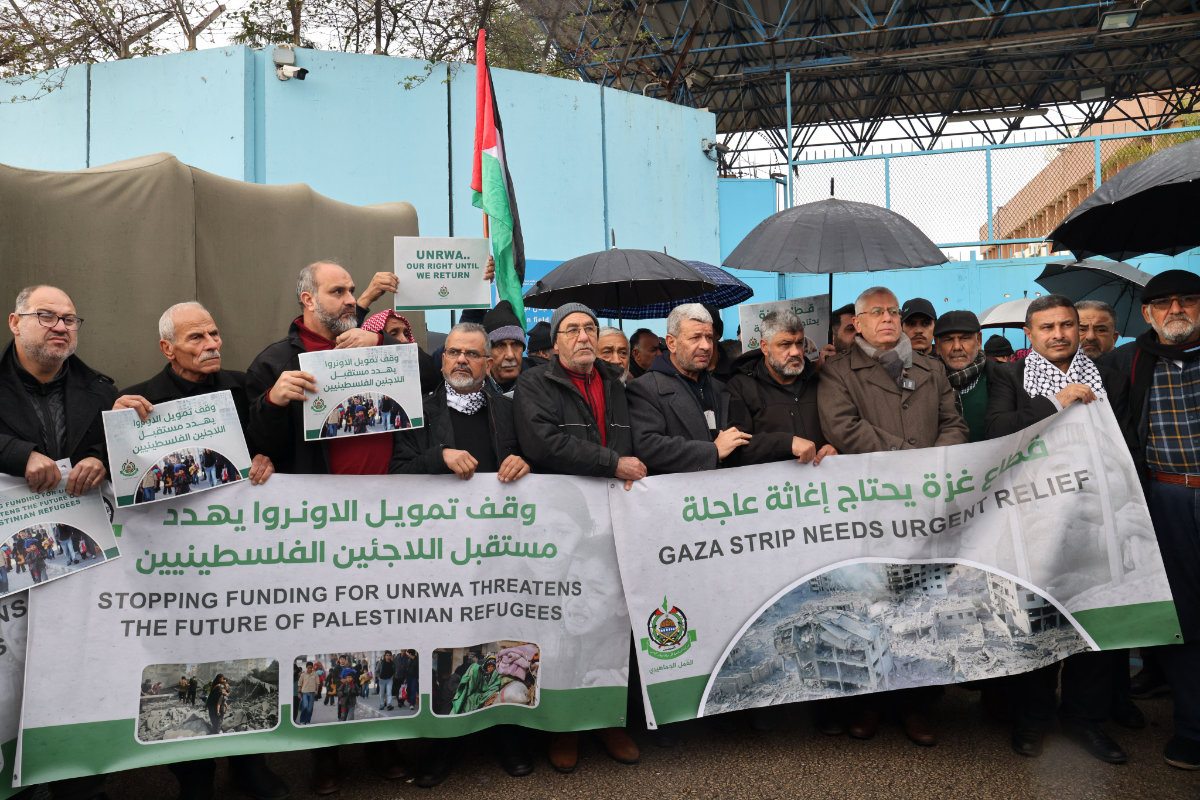
Palestinian refugees gather outside the offices of the UN agency for Palestinian refugees, UNRWA, in Beirut, Lebanon, on January 30, 2024 to protest against some countries' decision to stop funding the organization. (AFP)
The latest allegations are the latest in a long history of efforts to discredit the agency. Benjamin Netanyahu, the Israeli prime minister, has been especially keen to end UNRWA’s policy of allowing Palestinian refugees to pass on their refugee status to their children, thereby perpetuating the “right of return.”
Israeli officials say the policy keeps the conflict alive by preventing Palestinian refugees from fully integrating into new communities.
Casting doubt on the efficacy of the internal investigation, Netanyahu labeled UNRWA as an agency “perforated” by Hamas.
“I think it’s time that the international community and the UN itself understand that UNRWA’s mission has to end,” he told a delegation of ambassadors to the UN on Wednesday.
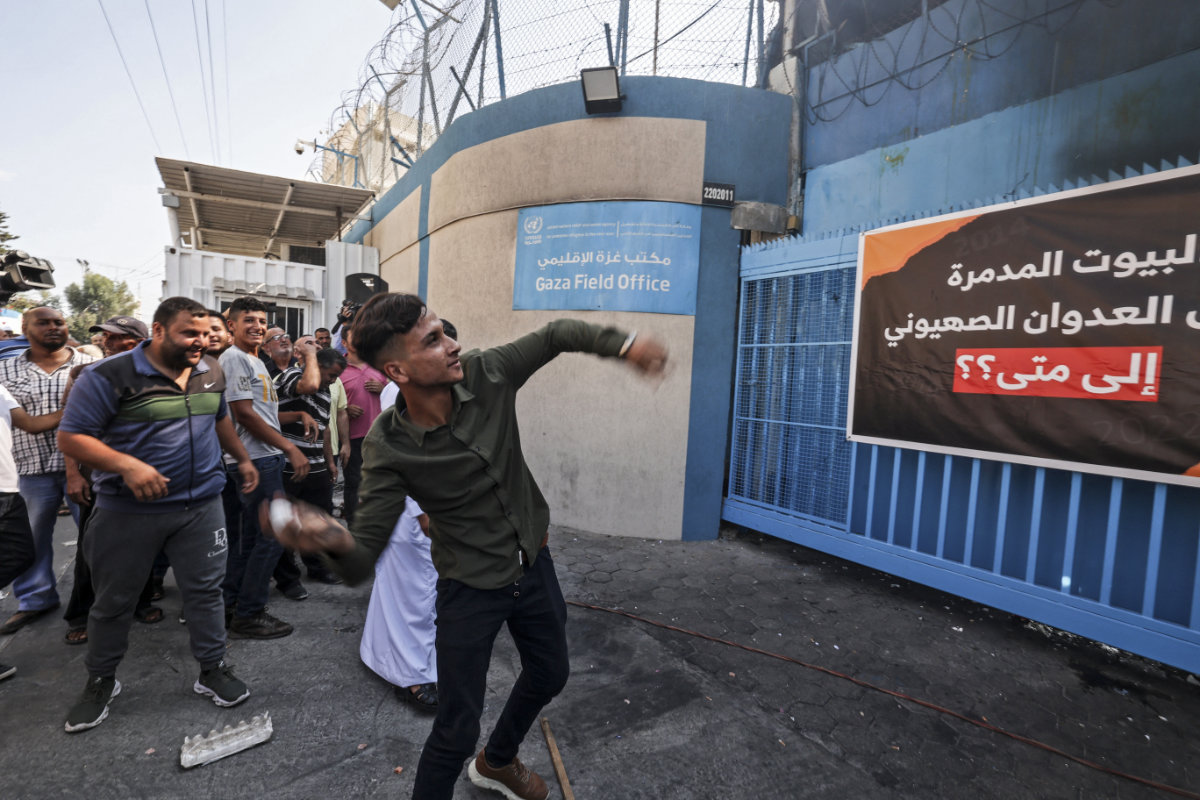
Palestinian protesters throw eggs at the entrance of the Gaza City field office of the UNRWA on Sept. 19, 2022, during a demonstration demanding that their homes which were destroyed in the 2014 conflict with Israel be rebuilt. (AFP/File)
“UNRWA is totally infiltrated with Hamas. It has been in the service of Hamas and its schools, and in many other things. I say this with great regret because we hoped that there would be an objective and constructive body to offer aid.
“We need such a body today in Gaza. But UNRWA is not that body. It has to be replaced by some organization or organizations that will do that job.”
Professor Kobi Michael, a senior researcher at Tel Aviv’s Institute for National Security Studies and the Misgav Institute for National Security, told Arab News that the suspension of funding for UNRWA represents a moment of optimism, noting that “if done in the right way,” Gaza’s civilians would not suffer.
“Now the world begins to understand and acknowledge that UNRWA is no less than another wing of Hamas,” he said.
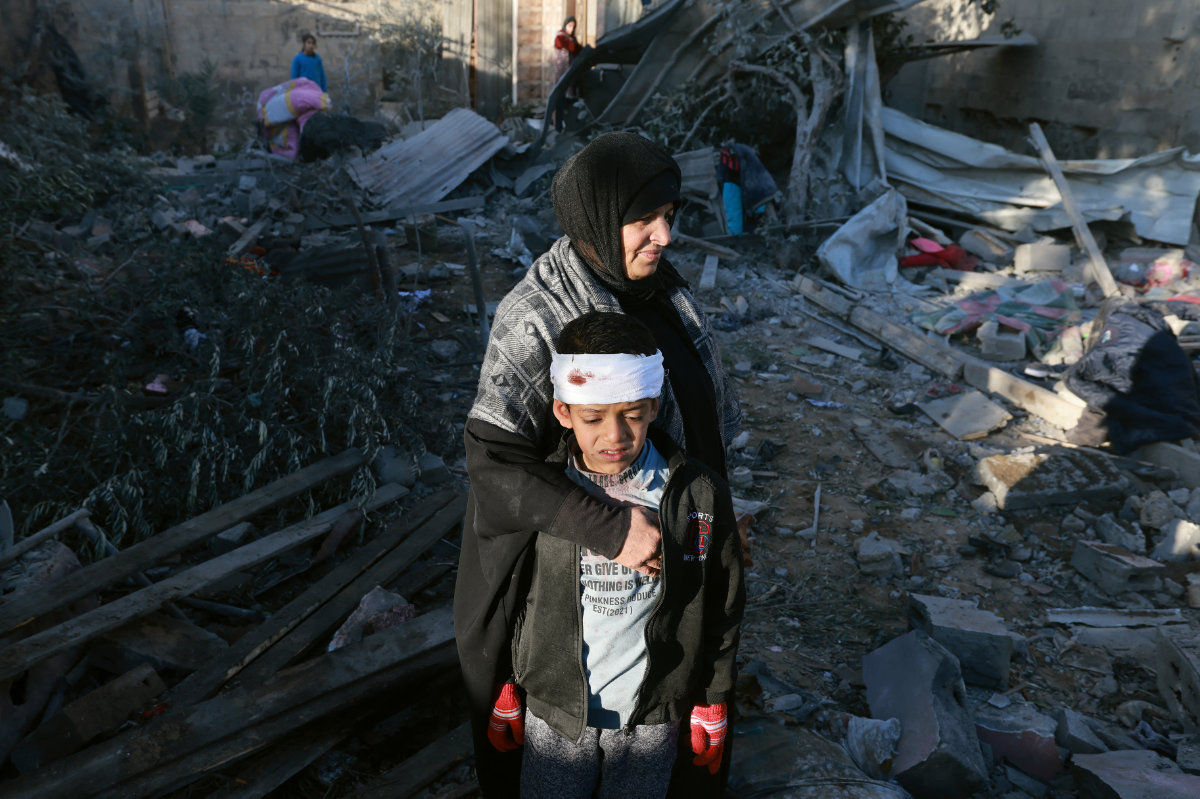
A Palestinian woman embraces a lightly injured boy as they check the rubble of a building following Israeli bombardment in Rafah. (AFP)
Referencing an Israeli intelligence report shared with foreign governments that alleged 10 percent of agency staff were Hamas members, Michael said he had “no doubt around the figures regarding UNRWA staff involved.”
He added: “The personnel and staff involved directly and indirectly in terrorism are much bigger. The agency must be shut down.”
Given the timing of the delivery by Israel of the evidence to the UN, Jordanian analyst Osama Al-Sharif said that it was nothing more than a perpetuation of Netanyahu’s campaign to have the aid agency shut down.
He told Arab News it also represented an effort by the Israeli government to “gaslight” the international community.
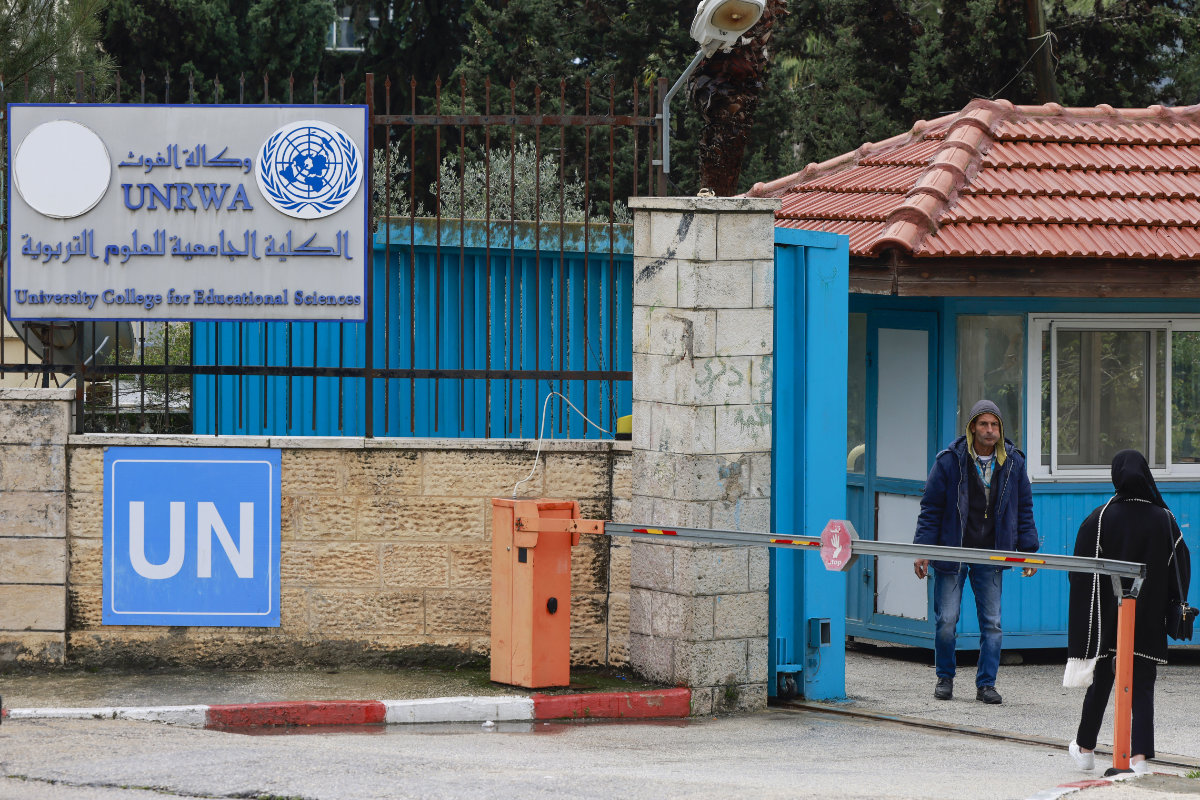
Palestinians stand at the entrance of the UNRWA-run University College for Educational Science Ramallah city in the occupied West Bank on January 29, 2024. (AFP)
“The allegations against UNRWA are not new and have been used on previous occasions, but this time they’re being used to deflect attention from the historic ICJ ruling that found a plausible case for genocide being committed by Israel in Gaza,” he said.
“And then there is the main objective behind killing UNRWA, which is to bury the right of return for Palestinian refugees, which Israel has always rejected.”
Gershon Baskin, the Middle East director of the International Communities Organization, did not dismiss rumors of a joint US-Israeli plan to replace UNRWA after the war, but he said that with the likes of the UK, the US and other countries becoming increasingly vocal about the need for recognition of a Palestinian state under a two-state solution, such plans might prove to be moot.
He told Arab News that if Palestinian statehood was recognized by major Western powers, the need for a dedicated refugee agency would become superfluous.
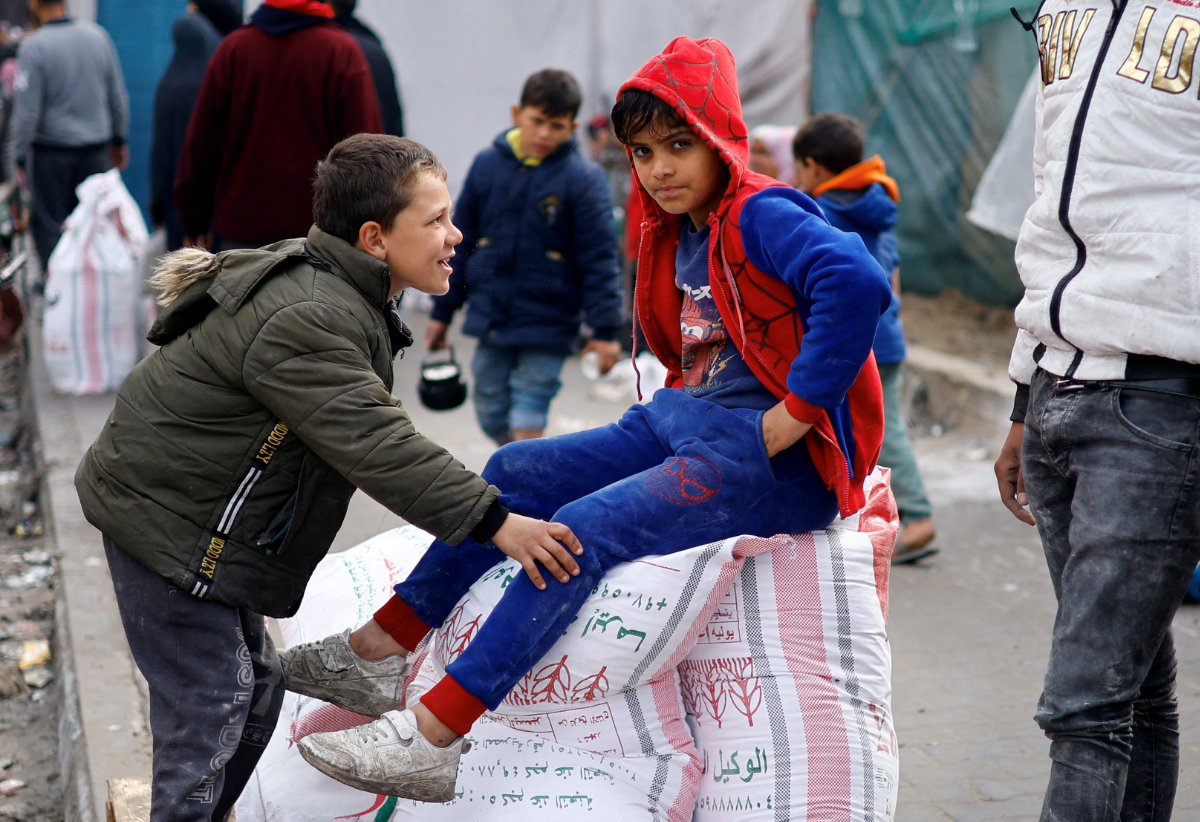
While it may be true that Hamas has been stealing aid supplies, it still made sense for the country to meet its obligations under the provisional ruling of the ICJ and to facilitate increased aid deliveries into Gaza, says aid exec. (AFP)
“You cannot be a Palestinian refugee inside the state of Palestine, so with recognition of the state, Palestine itself would have to take over governmental responsibility for the civil service and all the duties UNRWA undertakes now,” he said.
“At which point, UNRWA becomes a negotiating issue between the State of Israel and the State of Palestine.”
While recognizing the Israeli concerns over allegations that Hamas has been stealing aid supplies since the start of the conflict in October, Baskin said it nonetheless made sense for the country to meet its obligations under the provisional ruling of the ICJ and to facilitate increased aid deliveries into Gaza.
“My own proposal was that the Israeli army should bring the aid into Gaza, and should deliver it with the Israeli army protecting it so that the goods are not confiscated,” he said.
“And that aid should be brought to the areas where Israel is telling people that there will be safe zones. There are people in Israel that are beginning to talk about that possibility, so it might happen.”
